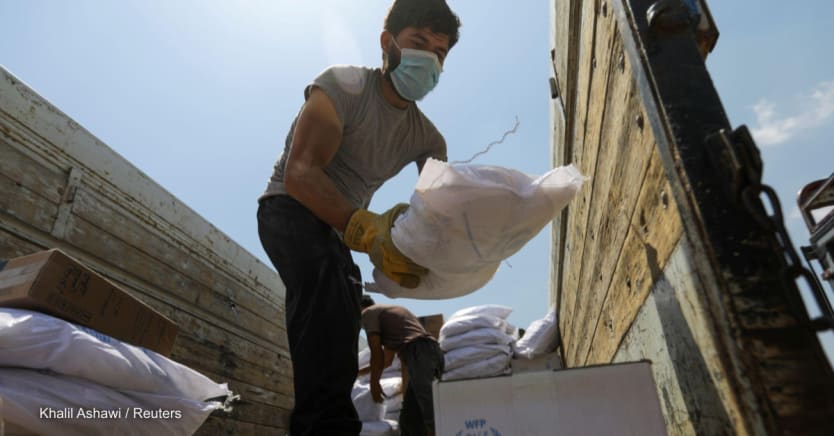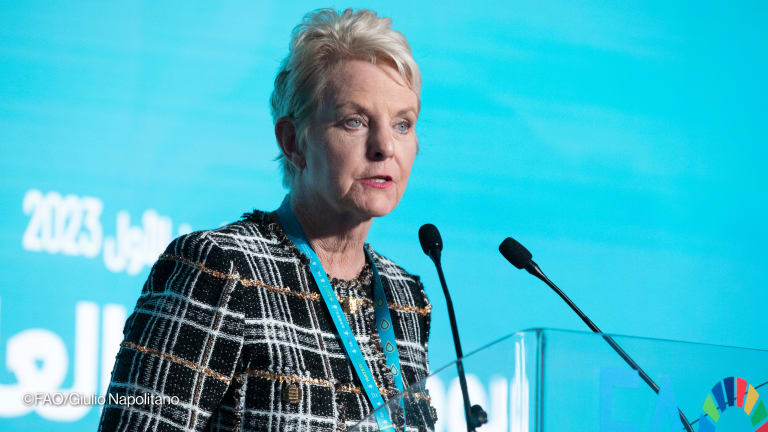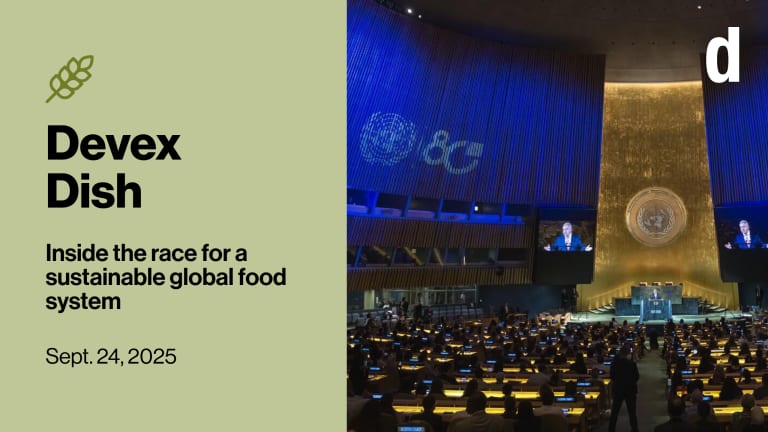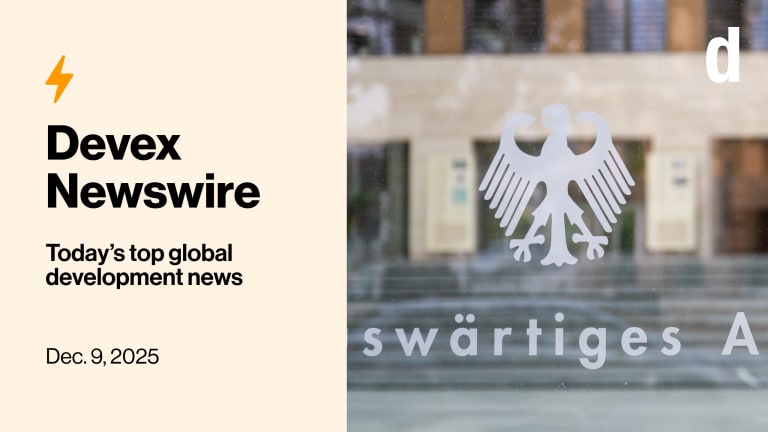
The combination of rising prices, COVID-19 and now the effects of the war in Ukraine have left Syrians “at breaking point,” the World Food Programme told Devex this week.
Speaking at the sixth Brussels conference Supporting the Future of Syria and the Region, Corinne Fleischer, WFP’s MENA regional director, said Tuesday that previously, people arriving at distribution points were told to register to receive assistance.
Get the inside track on how agriculture, nutrition, sustainability, and more are intersecting to remake the global food system in this weekly newsletter.
“Now, we tell them, ‘we can't register you. We don't have enough,’” Fleischer said. Despite relatively stable funding from donors, she said WFP’s cost per beneficiary is up one-third since the COVID-19 pandemic.
In the past, Fleischer said aid recipients would talk about not having had meat for a month, or not remembering the last time they ate an egg. “Now, the message is different,” she said. “Now, they break down when we talk to them. And for those who hold strong, they say, ‘I only feed my children bread.’ Or we had a woman who told us, ‘I don't have baby formula … My baby, I give her water with sugar.”
In the last two months, as the price of wheat flour and sunflower oil has spiked, the price of a reference food basket has increased by 24%. In the countries WFP supports in the region, Fleischer said that food insecurity has risen by about 25% compared to pre-pandemic levels.
“Now, our projections are another 10%, 12% [rise] because of Ukraine,” she said. “If you look at Syria, we said 12 million people are food insecure, 1.9 million are at risk … So it's going to go through the roof, while donors just don't have the money to deal with that.”
WFP is concluding the analysis of a recent large-scale assessment of 1.1 million families, to help identify households in most need. “As of July, we'll have to cut about a third of the people that we have on our lists,” Fleischer said, citing WFP’s reduced purchase power. “While we have already cut the rations by a third.”
Overall, donors pledged close to €6.4 billion ($6.7 billion) for people in Syria and neighboring countries hosting Syrian refugees at the conference in Brussels on Tuesday.
The final statement from meeting chair Josep Borrell, EU foreign affairs chief, reiterated that the funding would not go toward reconstruction work, which “will only be possible once a credible political solution … is firmly underway.”
Some 55 states attended the conference, but not Russia after the European Union insisted that it not be invited on the grounds that this year’s war in Ukraine showed that it was not interested in contributing to peace in the world. That move prompted the United Nations not to co-host the event as it had in previous years, Borrell told reporters Tuesday. However, senior U.N. figures did attend.
Borrell said that the decision to exclude Russia would not affect coordination efforts with the Kremlin in Syria, where Russia is an active party to the conflict. Notably, he predicted that Russia would not use its veto in the U.N. Security Council to block a key border crossing with Turkey used for humanitarian aid.
“I strongly believe that Russia will not do it. Because it would put more than 1 million people in a very dire situation,” Borrell said.
Philippe Lazzarini, commissioner-general of U.N. Relief and Works Agency for Palestine Refugees in the Near East, told Devex that “everything needs to be done” to ensure the U.N. resolution underpinning the border crossing is extended.
Asked whether this week’s conference should have gone ahead without Russia, Lazzarini said it was important it took place, to show people in the region that despite the war in Ukraine “their plight continues to matter to the international community.”
As for Fleischer, when Devex asked her whether Russia should have been invited, she said: “We're here for the Syrian people, and whoever needs to be at this conference should be here.”
Pressed on whether that included Russia, Fleischer said: “Whoever needs to be here should be here.”

Search for articles
Most Read
- 1
- 2
- 3
- 4
- 5








